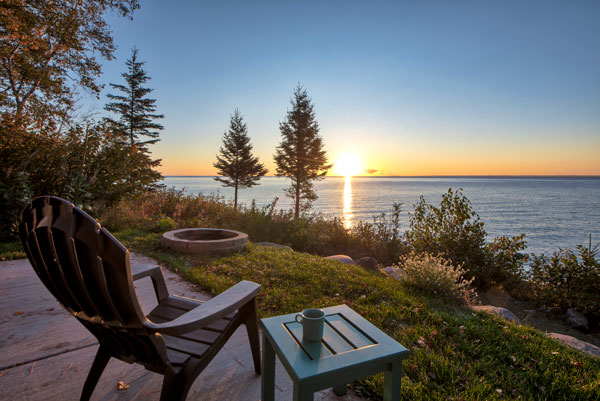How to close down your cabin for winter

While you may not want the summer to end, being prepared for it will help you enjoy a worry-free fall. It is a good idea to be aware of what needs to be done for closing down your cabin and to get started before the weather starts turning wintery. Consider having your cabin maintained by a property management company or check on it a few times over the winter.
Protect the pipes
If you are going to leave the heat on in your cabin, make sure to insulate all pipes running along exterior walls, outside, in crawl spaces, or in the garage by wrapping them with foam insulation. Even if the heat is staying on, you may want to consider draining the pipes.
If your cabin will not be heated during the winter, you need to drain all the water from the plumbing to avoid burst or frozen pipes.
- Turn off the main valve and the power to the water heater.
- Turn on all indoor and outdoor faucets and drain the water.
- Wait for a few hours for the water to cool and then empty the water heater through a hose connected to the spigot and let it drain into a bucket or floor drain.
- After you have emptied the pipes, turn off all the taps and do not turn the main valve or power to the water heater back on.
If you are not heating your cabin during the winter, do not forget to turn the main gas valve off.
Clean the furnace
If you are going to leave the heat on over the winter, you should have your furnace inspected and cleaned. According to Consumer Reports, leaving it on at 13 degrees Celsius or higher can stop your pipes from freezing.
Outhouse or septic system
If your cabin has an outhouse, sweep it and put the toilet paper away so mice do not use it for nesting. If you have a septic system, have it pumped out if it is nearly full or use bacteria for septic systems to break the sludge down.
Roof and gutters
While it is still sunny, inspect the roof and clean out the gutters. Check for damage to shingles and seals around chimneys. If there are trees near the roof, trim any branches that could break off from a snowfall or storm. Take debris out of the gutters to avoid them getting clogged and potentially causing water damage.
Clean up the yard
Walk around the outside of your cabin and look for things that must be fixed or put away for winter. Mow the lawn and remove grass and leaves. Empty and put away the lawnmower, put away patio furniture and clean tools.
Maintenance and hazards
Look around the inside and outside of your cabin for any damage or wear and tear that could create a hazard over the winter. Look for leaks around doors, windows, vents, pipes and wiring and seal them with caulk or insulation. You may want to have it professionally inspected because it will be empty for months with no one around to see anything that may go wrong.
Test the security system
If you have a security system, contact the provider and let them know you will be testing it. Make sure it works and that you know the password and the procedure to follow when using it.
Turn off appliances
Clean and unplug all appliances to save money on your electricity bill, prevent power surges and reduce the risk of a fire. Clean out the fridge and unplug it. If you are leaving any lights on, make sure they are not near any flammable materials and are not touching lamp shades.
Seal up furniture
Cover mattresses, furniture and cushions in plastic to prevent mice from nesting in them. Put some dryer sheets in to help discourage them from moving in.
Take food home
Take everything out of the fridge and cupboards, including dry goods and cans. When they freeze, cans can get small splits in them and let bacteria in, so it is better to take them with you. Wipe down counters and cupboards to keep mice away.
Take your valuables
Take your valuables home with you. If you have any that are too large to take with you, make sure they are out of sight. Make sure you have a list of all your valuables and that you have updated your insurance policy.



